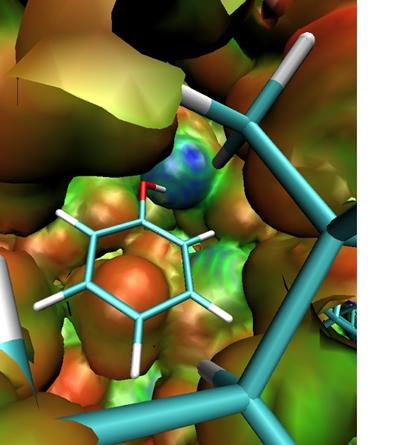PhD Studentship: Novel computational methods for drug discovery
The following PhD studentship is available in the research group of Dr Chris-Kriton Skylaris, at the School of Chemistry, University of Southampton.
View research themes and scientific publications from the group. The successful applicant will join a well-established research group in the area of computational chemistry. They will also have access to state-of-the-art supercomputing facilities such as the Southampton Iridis supercomputer and the HECToR national supercomputer and the latest developments in the ONETEP program. For further details please contact Dr Chris-Kriton Skylaris.
The PhD research project will involve developing and evaluating novel approaches for more accurate and realistic simulations of biomolecular association. A combination of techniques will be used, including classical molecular dynamics, structure optimisation, statistical mechanics methods for calculating free energies, and ab initio quantum mechanical calculations. The quantum mechanical calculations will be performed at very large scales on entire protein assemblies consisting of thousands of atoms by using the ONETEP linear-scaling program. These calculations will provide a quantitative description of the electronic charge transfer and polarization which are difficult to capture in computational simulations but very important as they fine-tune the interactions between ligands and proteins. The computational approaches will be initially evaluated on model systems and subsequently applied to predict the interaction of possible drugs with more complex biomolecular entities. This project will not only result in new methods for assessing the affinity of proposed drugs with the biological target of interest, but will also aim to develop a more general understanding of the fundamental mechanisms and modes of action in biomolecular association.
This is a prestigious BBSRC CASE PhD studentship which is supported by Boehringer Ingelheim who will enhance its tax-free stipend (approximately £16,000 p.a. and subject to annual increase) and will provide periods of placement within the company’s research laboratories in Germany. Applicants should have a top-level degree in Chemistry, Physics or related subject and a keen interest in computational chemistry and biochemistry. The studentship is open to UK students and also to EU students who fulfil the eligibility criteria set by BBSRC.
Related Staff Member

